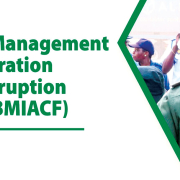|
Getting your Trinity Audio player ready...
|
The Constitution Twenty-first Amendment Bill is in circulation at Parliament. The private member bill was introduced on 1 November and presented to the Portfolio Committee on Justice and Constitutional Development on 26 November, by MP Glynnis Breytenbach.
The bill aims to amend the Constitution to establish the Anti-Corruption Commission (ACC) as an institution supporting and strengthening constitutional democracy in South Africa – in other words, as a Chapter 9 institution.
The bill is principally the work of Advocate Paul Hoffman and his organisation Accountability Now, said Breytenbach at the committee meeting, adding that the organisation was assisted by parliamentary legal advisors and legislative drafters.
The notice of intention to introduce the bill, gazetted in April 2024, refers to the Transparency International Corruption Perceptions Index, the inclusion of South Africa on the Financial Action Task Force’s grey list, the findings of the Zondo Commission, and the overall ineffectiveness of law enforcement agencies such as National Prosecuting Authority (NPA) and Directorate of Priority Crime Investigation, as motivation for amending the supreme law of the land.
The lack of independence of the NPA, particularly, is a major factor in its failure to properly investigate and prosecute serious corruption and organised crime, said the DA in a statement. “The ACC will be operationally independent, it will be able to properly staff itself, its budget will be determined by the National Treasury, and it will only report to Parliament. Thus, removing the spectre of control by the Minister and President.”
Furthermore, the bill sets out the functions, composition, membership, and tenure of the ACC, and determines its relationship to the NPA. It will have the power to “investigate and prosecute serious corruption and high-level organised crime exclusively. The NPA will retain the broader mandate to prosecute crimes.”
The best way to curb corruption is to have an independent, well-resourced, and specialised corruption fighting body that enjoys secure tenure of office, reads the notice of intention.
Legal imperative
The requirement for an independent anti-corruption institution originates in the Constitutional Court judgment of the 2011 case known as Glenister II, where the court provided for the creation of such an agency in South Africa.
“Parliament was directed by that joint judgment to fashion a constitutionally compliant response to the binding findings of that court so as to create anti-corruption machinery of state that is effective and efficient,” said Accountability Now last week. “Shamefully, the judgment has not ever been complied with properly.”
In addition, South Africa’s international treaty obligations also oblige the state to establish and maintain an effective and independent anti-corruption entity.
“The proposed Constitution Twenty-First Amendment Bill, 2024, will when passed, establish an Anti-Corruption Commission as a Chapter 9 institution which, like all Chapter 9 institutions reports directly to Parliament and is free of executive control as required by the decision of the Constitutional Court in Glenister v President of RSA and Others (48/10) [2011] ZACC 6,” reads the notice of intention.
At the same meeting Breytenbach introduced the Constitution Twentieth Amendment Bill, another private member bill which proposes a constitutional amendment in the form of the establishment of the Office of the Cyber Commissioner. This will also be a new Chapter 9 institution and, the bill notes, will function, among others, as a “cyber security hub for the reporting, monitoring, and investigation of cyber security incidents and threats in the private and public sectors”.








